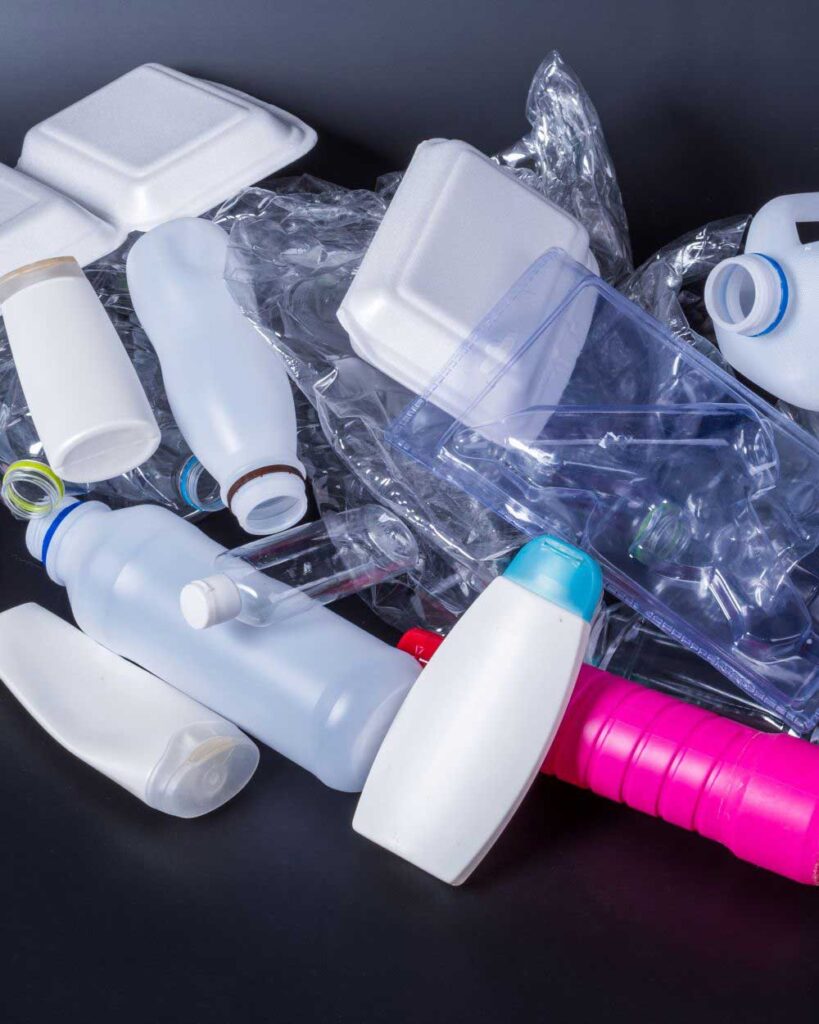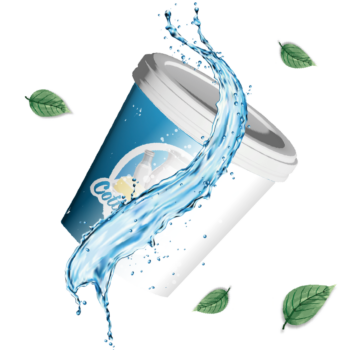Réduire, Réutilisation, Recycler: Le voyage vers des plastiques durables grâce à l’innovation des encres
La quête de plastiques durables est à l’avant-garde de nos défis environnementaux. Alors que les plastiques offrent de la polyvalence, durabilité, et commodité au quotidien, leur recyclabilité est devenue une préoccupation croissante pour toute une génération. Même si nous sommes loin d’un système circulaire, la question de la pollution plastique a accéléré la dynamique d’innovation, solutions durables, notamment dans le secteur de l'emballage.
Zeller Gmelin, Fabricant d'encres et de revêtements de haute qualité, a développé notre gamme de produits Earthprint ™ Enks comme résolution de la recyclabilité plastique dans les plastiques rigides et plus. Dans ce blog, Nous plongeons dans le processus de recyclage des plastiques, Comment l'encre peut avoir un impact sur la durabilité, Et comment les imprimantes, marques, et les consommateurs peuvent travailler ensemble pour une circularité accrue.
Le Tache en Sutacheplastiques capables
De nombreux produits en plastique que nous utilisons tous les jours peuvent être recyclés pour créer de nouveaux articles. Alors pourquoi tous les matériaux plastiques ne sont-ils pas recyclés? C'est parce qu'il y a une tache dans le processus de plastique durable que Zeller + Gmelin est déterminé à corriger.
Le processus de recyclage
D'abord, Comprenons le processus de recyclage du plastique. Collecté dans les ménages et les entreprises, Les plastiques recyclés sont pris en charge. Les plastiques sont séparés en fonction de leur type d'identification de type et de résine, généralement trouvé au fond des contenants en plastique. Ces codes déterminent comment chaque plastique est traité et dans quoi il peut être recyclé dans. Pour en savoir plus sur les codes d'identification en résine et comment recycler chaque type de plastique, Voir notre infographie imprimable!
Après le tri, Les plastiques sont nettoyés pour éliminer tous les contaminants tels que les encres, adhésifs, nourriture, résidu, et / ou d'autres débris. Cette étape est cruciale pour assurer la qualité et la réutilisation des plastiques recyclés. Après le lavage, Les plastiques nettoyés sont déchiquetés en petits morceaux ou flocons pour un processus de fusion plus simple. Après la fusion, Les plastiques sont forcés d'une dé.
Le problème de recyclage
Les plastiques les plus courants recyclés sont le polyéthylène téréphtalate (ANIMAL DE COMPAGNIE), couramment considéré comme des bouteilles d'eau claires, et polyéthylène à haute densité (PEHD), Comme des cartons de lait et des bouteilles de shampooing. Les plastiques clairs et blancs sont les plus préférés lors de la création de produits à partir de matériaux recyclés car ils peuvent facilement être modifiés à une variété de couleurs. pourtant, Cette polyvalence comporte plus de risques.
Avec des plastiques recyclés, Si l'encre est laissée sur le matériau recyclé après le processus de lavage, Il se mélangera avec les matières premières ajoutées et laissera derrière lui un produit terne ou cassé. Ceci est courant et conduit souvent à plus de matières premières ajoutées pour plus de clarté ou de dynamisme, ou pire, marques qui renoncent au plastique durable entièrement. Assurer les encres complètement lavées est vitale pour un processus de plastique plus durable.
Réduire, Réutilisation, Recycler avec Earthprint
Chez Zeller+Gmelin, Nous avons formulé Inscriptions d'impression Earthprint ™ pour une recyclabilité élevée, Tout en maintenant une adhésion avancée et une force de pigment. Cela permet à l'encre de rester résistant à l'eau et aux rayures, Pourtant, laver complètement dans un lavage de soude caustique sans avoir un impact sur la couleur des matériaux recyclés. Comme la plupart des plastiques rigides, comme HDPE, PP, etc., La recyclabilité repose sur le fait d'être sans contaminer et «propre». Avec Earthprint ™ Encres, Les plastiques sont laissés plus transparents, plus blanc, et plus brillant une fois lavé, Ainsi, ils peuvent être facilement recyclés dans de nouveaux produits qui nécessitent moins de matières premières.
Earthprint ™ se concentre sur les trois principes d'une économie circulaire: Réduire, Réutilisation, et recycler.
RÉDUIRE. Les encres Earthprint ™ réduisent la quantité de plastiques vierges utilisés pour obtenir une couleur blanche ou claire brillante dans les nouveaux produits. Il peut également réduire la consommation d'encre pour des couches d'inondation plus épaisses qui tentent de couvrir la couleur du plastique.
Réutilisation. Avec Earthprint ™, Le résultat est plus clair, plastiques plus blancs durables, permettant à plus de matériaux recyclés d'être réutilisés dans le processus de recyclage du plastique.
RECYCLER. En réduisant les matières premières et en réutilisant plus de plastiques recyclés, Plus d'emballages peuvent utiliser des matériaux recyclés et plus de plastiques peuvent être recyclés. Les imprimantes peuvent profiter des encres Earthprint pour offrir une solution durable dans leurs offres de produits imprimés en plastique.
Voir la compréhension des encres décalées à sec Earthprint (INFOGRAPHIQUE)
Alors que l'industrie des emballages continue d'innover les solutions écologiques, La recyclabilité doit être considérée à chaque étape du chemin. De la conception d'étiquette aux plastiques colorés en passant par les encres d'impression, Toutes les décisions d'emballage ont un impact sur les processus de recyclage et tout au long du cycle de vie du produit. Choisissez Earthprint ™ comme votre solution d'encre écologique pour fermer la boucle sur les plastiques durables. Contactez un spécialiste de l'encre Zeller + Gmelin Pour discuter si Earthprint est la bonne solution pour vos applications d'impression.


